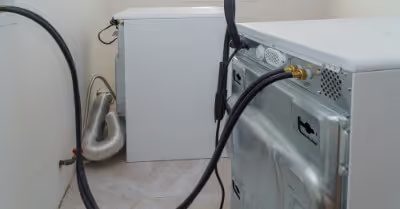Table of Contents
Why Do I Want to Sell My House?
A home is, evidently, more than just a place to live. It is where life happens, where you raise your loved ones and where you create everlasting memories. Your home is your oasis of safety and security, a place where you'll feel most comfortable after a long day of hard work. In essence, your home is where you'll spend most of your time.
So before even thinking about listing your home, you should ask yourself; why am I doing this? What are the unique motivators that are driving me into making this difficult decision? Is it just about the finances? Am I faced with the prospects of a looming foreclosure? Is it because of a nasty divorce? Why do I want to make this change and what kind of emotions are attached to the sale? How will it affect me and my loved ones now and in the future?
For most people, selling a home will largely be influenced by the financial part of it, but this decision goes beyond finances alone. In addition to looking at the financial part of it, you should be able to ask inner questions and find out whether selling is the right thing to do. By asking and answering all these questions, you'll have a much better insight and this will enable you to take an even more powerful standpoint and get the most out of the sale.
What Should I Do When I've Made the Decision to Sell My Home?
You've now made the decision to sell your home but this is just the beginning of a really involved process. You certainly do not want to be hit by surprise costs down the line, so the most important thing to do is to cover all your bases.
The first step is to sort out your finances by paying off any outstanding credit card balances and completing all your taxes. You do not want Uncle Sam closing in on you when you're just about to make a big sale as this can seriously diminish your profits and break the deal altogether.
Although costs such as attorney costs and realtor fees are often associated with almost every home sale, there may be additional fees such as bridge financing and mortgage cancellation fees. The best move is to try as much as possible to protect yourself from additional or unforeseen costs. For instance, you can consider calling your lender and finding out how much you owe on your mortgage, as well as any fee associated with the cancellation of your mortgage. You can also look at other costs such as appliance warranties and manuals; collect your tax statement, floor plans, and property survey.
In essence, it's of great importance to get your finances in order before starting the sale process. This will at least give you a clue on how to price your home to cover all these costs without scaring any potential buyers. By doing this, you'll minimize the probability of being hit by surprise costs down the line.
How much is My Home Worth?
We should all feel lucky to live at a time when we can find almost anything including the estimate of your home on the internet. While this may seem so convenient especially to the millennials, knowing the worth of your home based on some automated estimates on the internet may not be so accurate. So whether or not you choose to go with the internet estimate, you should know that there are several other factors that determine how much your home is worth.
Factors such as the condition of your property, location, square footage, amenities, as well as updated comparable (or what real estate agents often refer to as "comps") property sales. When using comparable sales to gauge what your home might command on the current open market, you should make sure that your home and the one that you're comparing it with are of similar size and condition. It would even be better if the homes are in a similar location and have similar amenities.
Another good way of figuring out the worth of your home is by looking at your most recent property tax bills. As you might have noticed, your property taxes often change with the value of your home. As such, you can compare, say, your most recent property tax with the one from last year and assess whether there's an increase or a decrease.
An increase would mean that the value of your home is on the rise while a decrease may not be good news to many homeowners, especially when looking to sell. Most property tax bills are determined based on the property's fair market value. Here's how to do it. Most states use assessment rates ranging between 80% and 90%. So to fairly estimate the value of your home, you should divide your tax assessed value by the assessment rate of your particular state. Does it make any sense? We hope so.
You can also find the value of your home from a professional realtor who is well-conversant with the value of homes in your locality. This professional may have sold several homes in the neighborhood for many years and so he/she should be in a much better position to assess your home and give you a more precise estimation of your home's value in the current market. The realtor can also give you some ideas on how to elevate the value of your home.
How Can I Sell at the Highest Price Possible?
It may be a tough reality to swallow to learn that your neighbor's home of similar size and amenities as yours sold for ten figures more than the highest estimate you've found for your home. So how can you make sure that you don't undergo such a scary scenario? Well, it all lies in doing things that may help you get the highest price possible.
While it would be okay to get fair market value for your home, any home seller would be happy to earn more from a sale. This is where real estate professionals come in handy. They can give you ideas on how to make your home more desirable to potential buyers and the things you can do to influence home buyers into paying top dollars for your home. In essence, the first step towards getting the highest price possible is to hire a real estate professional to help you improve various facets of your home, stage the home, and ensure that it's in a condition to add value.
But if you cannot afford the services of a real estate professional, you can simply start by sprucing every part of your home. Make sure that the walls and ceilings are given fresh paint and are impeccably clean. Eliminate clutter, wash the windows and doors, and install modern and higher wattage bulbs to create a brighter but calming environment. You should also renovate the kitchen(s), bedrooms, and bathrooms. Also, make sure that your home is attractively staged by saying adding an inviting picture on the wall. All in all, do everything, both inside and outside to add value to your home.
In addition to sprucing various parts of your home, you should put a lot of emphasis on hiring a stager and a home photographer. You should dare use your phone to snap a few pictures of your home and use them to list the home. This would be one of the biggest mistakes you can make when selling. The idea here is that most buyers will first fall in love with your home from an online listing, so the photos you use to list the home must be of the highest quality possible and this requires the services of a professional stager and home photographer.
When is the Best Time of the Year to Sell My Home?
You're obviously looking for ways to maximize your profits when selling your home. We all do and that's the right thing to do, so we're going to be very honest here. While you can sell your home at any time of the year, there are some months or even days when selling your home is easier, faster, and even more profitable. But then again, this may also depend on the urgency, so if you can't wait then you can just go ahead and proceed with the sale.
Generally, the best time to sell your home is in spring just before summer, during summer, and in early fall immediately after summer. On the contrary, selling during winter or deep into fall can be quite hellish.
Let's get into the details. Most people often buy homes in spring just before going for the summer holidays. While the sales might slow down a little bit in mid-summer as many people are away on holiday, things can pick up in late summer and in early fall when the holidays are over and just before schools reopen. Contrarily, many people do not venture out during winter, so it may be quite hard to sell around Christmas or at the height of the winter season.
If you, therefore, want to maximize your home sale profits, you can consider putting your home on sale in May, June, and July as they are the hottest months. According to a recent study, homes sold in May make about 7.4% more than average while homes sold in June make nearly 9.2% more than the average sale. Again, another study indicates that listing your home on Thursdays often sells for more and at a faster rate than homes listed during other days of the week.
These details might seem minute but they can make the difference. You should, however, remember that the real estate industry is still a much-localized industry and what works in a given area may not work in another area. In essence, it's important to be aware of the local market trends and how you can use them not just to maximize your profits but also to ensure that your home doesn't stay in the market for long. This brings us to the next question.
How Long Will it Take to Sell My Home?
It's no secret that no one can exactly predict or pinpoint what will happen in the future. Fortunately for you, many real estate experts have been in this game for so long that they can at least have some idea how long it will take to sell your home. That being said, this might be the right time to call a few agents to get the right information as to how long it might take to sell your house.
In most cases, the amount of time it takes to sell your home will largely depend on various factors such as the location of your property, how aggressively your home is marketed, how competitively your home is priced, and market conditions, as well as the condition of your home. You should also keep in mind that a slight mistake such as overpricing your home may mean that it languishes in the market for months.
In recent years, the number of days or weeks that it takes to sell a home is becoming shorter and shorter. But even with this, it would be a smart move to talk to a real estate professional who sees such a sale up close and personal every single day to get an idea of how long it would take to sell your home and the things that you can do to quicken the sale. This will at least give you an idea of how long it will take from listing to closing so that you can organize yourself within that time frame.
And if the statistics from the National Association of Realtors is anything to go by, it shows that an average home should get an offer within the first 12 showings. This data also shows that an average home can stay in the market for 62 days before it's sold, though this may vary greatly depending on your state. For instance, it takes just 37 days to sell a home in Washington while it may take 186 days to sell an average home in Vermont. All in all, having a rough idea of how long it would take to sell your home is of great importance.
How Much Does it Cost to Sell My Home?
There are, of course, many costs that come with selling your home. The best thing is that you don't have to pay most of these costs from your pocket. Instead, many of these costs will be settled at closing using the proceeds of your sale.
Ideally speaking, your current home equity should be enough to cover the costs of selling your home. For instance, you should be able to pay off the mortgage, cover the costs of inspections, real estate agents commissions, and cover your moving costs among other costs. General studies show that it always takes about 5 years to build up enough home equity to cover all the costs that may be associated with selling. As such, following this 5-year rule can be a great way of achieving your real estate goals.
More importantly, the costs of selling your home may range between 10% and 15% of the sale price. Some of these costs include:
- Your real estate agent's commission
- Repair costs
- Staging and prepping your home
- Selling concessions
- Homeownership and overlap costs
- Closing costs
While you can minimize the cost of selling your home by not using a real estate agent, we often advise against this move, which brings us to the next question.
Should I Hire a Real Estate Agent?
Selling your home on your own would mean that you don't have to deal with real estate agents, so you won't be required to pay commissions. Well, this may be very tempting but it's NOT the best thing to do. While there are pros and cons of hiring a real estate agent, using an agent not only adds value to your sale but will also quicken the process and advise you accordingly. A real estate agent will help you in pricing your home, coming up with an appropriate sale strategy, creating valuable marketing tactics, and negotiating on your behalf.
In essence, a real estate agent will guide you and help you in many aspects of the sale process. From pricing to listing to marketing and to handling the intricacies of closing the deal, an agent will help you through these challenging processes. It's, therefore, upon you to find an experienced and knowledgeable real estate agent, a professional who's conversant with selling a home in your area and who will not only secure you the quickest sale but also the best price possible.
How About Home Inspection?
As the seller, it's recommended that you inspect your home before listing. Although not all sellers do this, it can be a great way of pinpointing areas within your house that are damaged and need repair.
But even if you carry out this initial inspection before listing, you should expect that the buyer will require an inspection once you've accepted his/her offer. Generally, it will be upon the buyer to hire an inspector to assess home just in case it's up to the standard. Should there be any damage, the buyer may request you to do the repairs or you may have to lower the sale amount to cover for the repairs. In other words, a buyer can use damages as a negotiation tool to lower your asking price. As such, it's important to carry an initial home inspection, repair the damages, and this might increase the value of your home.
What can I Do if My House Isn't Selling?
There are times when your home might not sell as fast as you would like. Don't worry, this is normal and it can happen to any home seller. If anything, it doesn't mean that your home isn't in great condition. But when it happens, you may want to go back to the drawing board and find out exactly where the problem is. Make sure that your house isn't overpriced by adjusting your prices accordingly. You can also make the repairs that might be holding back buyers or find out if you and your agent are using appropriate marketing and negotiating strategies. You can consider switching agents or using different marketing or selling strategies.
All in all, selling a home requires patience but make sure that everything is spot on. If you want a fast sale and an incredible deal, we are the go-to guys. Call us on (214) 441-7706 and we'll always be available to give you a very sweet but fair deal.
Bottom Line
Selling a home is, without a doubt, a huge life event that can bring changes to just about every aspect of your life. From your work schedule to your meals, and your laundry, selling your home is a serious undertaking that requires careful and thoughtful actions and decisions. Hopefully, you're now at a better place to make the right decisions when selling your house.
Recent Articles
















